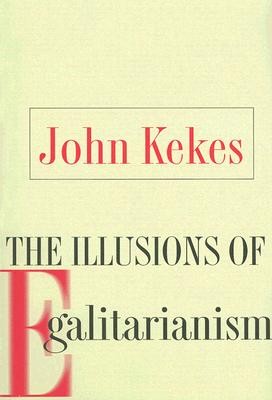
- Išsiųsime per 10–14 d.d.
- Autorius: John Kekes
- Leidėjas: Cornell University Press
- ISBN-10: 080147339X
- ISBN-13: 9780801473395
- Formatas: 15.3 x 22.8 x 1.5 cm, minkšti viršeliai
- Kalba: Anglų
- Extra -15 % nuolaida šiai knygai su kodu: ENG15
Atsiliepimai
Aprašymas
In this systematic and scathing attack on the dominant contemporary version of liberalism, John Kekes challenges political assumptions shared by the majority of people in Western societies. Egalitarianism, as it's widely known, holds that a government ought to treat all citizens with equal consideration. Kekes charges that belief in egalitarianism rests on illusions that prevent people from facing unpleasant truths.Kekes, a major voice in modern political thought, argues that differences among human beings in the areas of morality, reasonability, legality, and citizenship are too important for governance to ignore. In a rigorous criticism of prominent egalitarian thinkers, including Dworkin, Nagel, Nussbaum, Rawls, Raz, and Singer, Kekes charges that their views present a serious threat to both morality and reason. For Kekes, certain "inegalitarian truths" are obvious: people should get what they deserve, those who are good and those who are evil should not be treated as if they had the same moral worth, people should not be denied what they have earned in order to benefit those who have not earned it, and individuals should be held responsible for their actions. His provocative book will compel many readers to question their faith in liberalism.
EXTRA 15 % nuolaida
Kupono kodas: ENG15
Akcija baigiasi už 4d.07:44:12
Nuolaidos kodas galioja perkant nuo 10 €. Nuolaidos nesumuojamos.

- Autorius: John Kekes
- Leidėjas: Cornell University Press
- ISBN-10: 080147339X
- ISBN-13: 9780801473395
- Formatas: 15.3 x 22.8 x 1.5 cm, minkšti viršeliai
- Kalba: Anglų
In this systematic and scathing attack on the dominant contemporary version of liberalism, John Kekes challenges political assumptions shared by the majority of people in Western societies. Egalitarianism, as it's widely known, holds that a government ought to treat all citizens with equal consideration. Kekes charges that belief in egalitarianism rests on illusions that prevent people from facing unpleasant truths.Kekes, a major voice in modern political thought, argues that differences among human beings in the areas of morality, reasonability, legality, and citizenship are too important for governance to ignore. In a rigorous criticism of prominent egalitarian thinkers, including Dworkin, Nagel, Nussbaum, Rawls, Raz, and Singer, Kekes charges that their views present a serious threat to both morality and reason. For Kekes, certain "inegalitarian truths" are obvious: people should get what they deserve, those who are good and those who are evil should not be treated as if they had the same moral worth, people should not be denied what they have earned in order to benefit those who have not earned it, and individuals should be held responsible for their actions. His provocative book will compel many readers to question their faith in liberalism.




Atsiliepimai